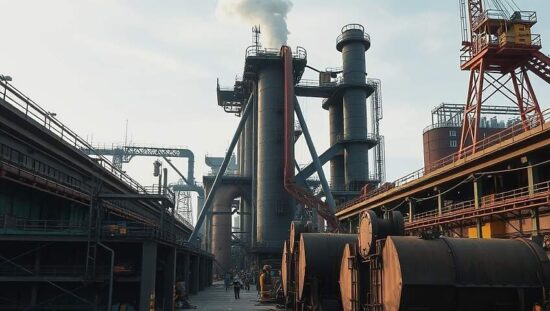The European Commission’s proposed safeguard measures on steel imports are poised to revitalize Germany’s steel industry, potentially restoring profitability to numerous plants, though the move is drawing cautious support from Berlin amid concerns about downstream effects. According to a report by Boston Consulting Group, cited by “Der Spiegel”, the planned reductions in duty-free import quotas and doubling of tariff rates could significantly boost factory utilization across key steel categories. Warm-rolled band steel production, a cornerstone of the industry, is projected to see utilization rates climb from 72% to 85%, with galvanized sheet metal, crucial for the automotive sector, ascending from 81% to 90%. A utilization rate of at least 80% is generally considered a prerequisite for sustained profitability.
While representatives from industries reliant on steel, particularly the automotive sector, express anxieties about burgeoning material costs, Germany’s government is largely endorsing the Commission’s strategy. Officials within Berlin acknowledge the vital role of a robust steel industry, citing its importance as a foundational sector supporting strategic industries, including the rapidly expanding defense sector.
However, the German government is adopting a measured approach, stating its intention to thoroughly assess the potential repercussions of the safeguard measures on processing industries. This careful scrutiny highlights a tension between protecting domestic steel production and mitigating potential supply chain disruptions and inflationary pressures on vital downstream sectors. Critics argue that while bolstering the steel sector is necessary, the government must carefully balance this with the imperative of preserving competitiveness and affordability across the broader German economy. The impending evaluation will likely shape Berlin’s final position and influence the overall scope and implementation of the proposed EU safeguards.





